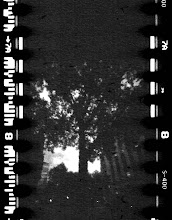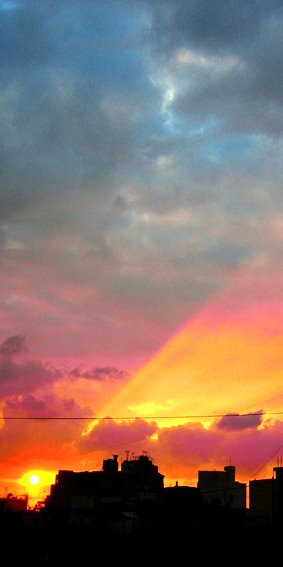So Friday night marked the release of Fareeq El Atrash's* second album. The guys held an event at the Sunflower theatre, featuring two other acts, El Rass, and Latlateh.
I first got introduced to the hip hop culture in Beirut a few years back when I was putting together my own sort of event, a hybrid of free style rap and pictionary. (I'm not going to go into much details, but check out Omar el Fil's review of the second edition of the event here.. it should do the trick).
I never was one for hip hop being more of a rock and indie music sort of girl, but through the crowds I met and the introduction I got, I quickly became a fan and bred an overall appreciation of the wordmanship and lyrical dexterity that went into hip hop culture in Beirut. I had an even bigger respect for old school instrumental composition, such as that of Fareeq Al Atrash, who really do put the extra effort into making their music and ultimately their live shows about the music as well as the words, bringing in solos and improvs and guest musicians.
The supporting acts cannot go unmentioned, I have to put a word for Sayyed Darwish (part of Latlateh?) whose full on poetry was heart warming, touching, and truly performed with a tone that went right to the heart. The production sampling old Syrian songs and poetry was all too good at bringing it all close to home, reminding us that our neighbours, the people of Syria, are just over there, bleeding in a war in which no one will be a winner. Al Rass was also astounding, his eloquence and delivery was impeccable, and his puns and play on words clever and piquant. I couldn't help memorise the last line from his song "The Penguin", where he says (roughly translated) "I've got my feet on the ground, and if I want to fly, all I have to do is swim in the ocean that reflects the sky". It's translation does it no justice.
But this post really isn't just about the show, or the Fareeq guys who happen to one of many homegrown bands that I am proud to call friends, proud to say come from this city. It's more about a revelation I had while watching the performers.
In all honesty, hip hop and rap doesn't really go with the grain in our culture. It's a style more known to the west, sung more in English than anything else. But it's managed to transcend the language barrier, and bend into our letterforms, and cut up to measure, making it congruous. We've made it work.
But I don't believe that's why it works.
In a country lacking modern history (actually any record of Lebanese history since 1975 to be exact. Check your official history books) hip hop artists have become our historians.
It's not about the bling or cars or bitches on the beach. It's about the current political strife, the ills of society, the issues of our generation. It's about the war in Syria, the Palestinian cause, the Lebanese corruption. And that has taken it to a whole new plane of thought.
Hip hop in our culture is nationalist poetry put to a beat. It's the voice of the layman, the sound of the streets. And the artists know it too. And that's one hell of a responsibility to carry. So kudos to those who use that power respectfully, who do not fuel or feud, who ask for what everyone at the end wants. Stability, honesty, a future.
It's the subject matters that are tackled that bring out in me a support and an appreciation of this music. I find the beats to simply add an organised support of what is being said, sort of like a unanimous head bob to the right message, and put to music (what could be better). We, the people, get to agree in our own simplified way. United we stand, under the bass line, and to the beat of the human beat machine.
It's at these concerts, and to these lyrics I wonder where our politicians are. Actually, the politicians are brought down to our level. They're not any more powerful than the guys mentioning them in their lyrics. In fact the contrary is true, I see the power of the people, and it's way stronger than theirs.
This is our history. This is what we are. And all the babble in the background on the news is just noise, just a diversion, just a distraction to what is happening, to what is needed.
This is our history. This is what we are. And all the babble in the background on the news is just noise, just a diversion, just a distraction to what is happening, to what is needed.
So all you political analysts, news reporters, expat journalists assessing the situation, telling us what to think what to see, it's time to turn your deaf ear to these voices and hear the future, hear the truth, hear what we hear, hear what we mean.
You won't get a read on the situation from the suits behind the doors of parliament, not through the microphones of the tv stations.
You'll get it from the streets, and through microphones on a theatre's stage in Tayouneh.
* Fareeq El Atrash translates literally from Arabic into "The Team of the Deaf", hence the blog title.
P.S. Please encourage homegrown bands like Fareeq El Atrash, Lazzy Lung, Mashrou3 Leila, Wanton Bishops and all the other great talents coming out of Beirut these days by buying their music and going to their concerts. Thank you.
* Fareeq El Atrash translates literally from Arabic into "The Team of the Deaf", hence the blog title.
P.S. Please encourage homegrown bands like Fareeq El Atrash, Lazzy Lung, Mashrou3 Leila, Wanton Bishops and all the other great talents coming out of Beirut these days by buying their music and going to their concerts. Thank you.









